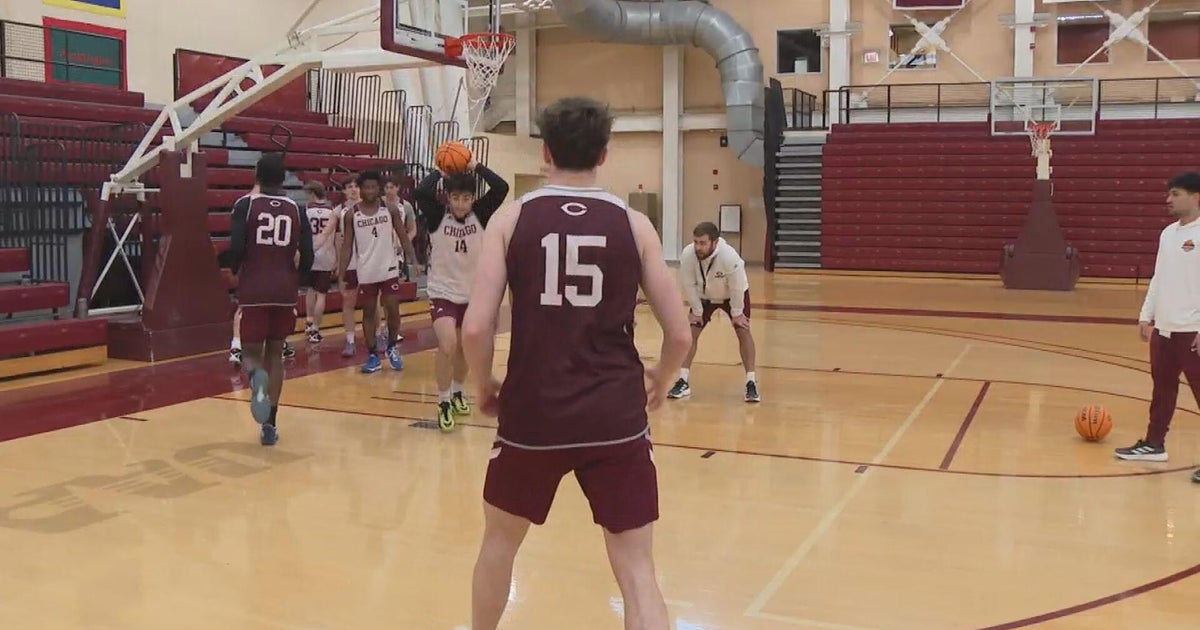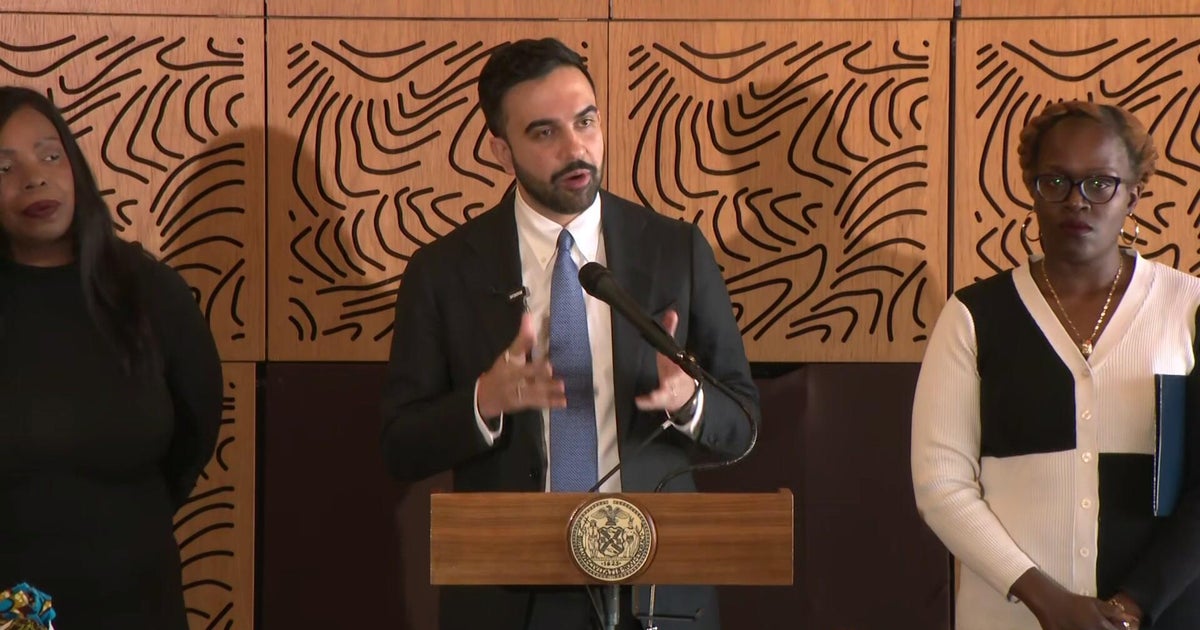Big 12's Fate Rests With Oklahoma And Texas
(AP) Over the past dozen years, Oklahoma and Texas have teamed up to turn the Big 12 into one of the nation's foremost college conferences, winning two national championships and playing for the title a half dozen times.
And now, the league's fate rests squarely in their hands. Will they stay together and find a way to make the Big 12 viable into the future? Will they leave together and take their riches west to the burgeoning Pac-12? Or will they part ways, potentially bringing down the league and ending one of the sport's most colorful and storied rivalries?
Each school's board of regents took action Monday to empower the university presidents - David Boren at Oklahoma and Bill Powers at Texas - to choose a new conference home. Yet neither is saying goodbye to the Big 12, or the other, just yet.
Boren said his focus is solely on either stabilizing the Big 12 through an equal revenue-sharing plan or taking Oklahoma to the Pac-12. Powers wouldn't divulge Texas' options, saying only that the process is "ongoing."
"We're almost like a family. Sometimes we don't see things exactly the same way," Boren said. "But while we like being rivals, we also like to work together when it's appropriate and we're continuing to have conversations with our friends at the University of Texas.
"And I think we're always stronger when Texas and Oklahoma move together, just as we're stronger when Oklahoma State and Oklahoma work together."
Boren said he has been in daily contact with Burns Hargis, his counterpart at Oklahoma State, and the in-state Bedlam rivals won't be separated. Oklahoma State's regents have called a special meeting on realignment Wednesday.
"Whatever we do, we're going to do it together and I think that's very good news for the state of Oklahoma," Boren said.
It's not so simple with Texas, which has been playing Oklahoma regularly for over a century - long before the two became conference partners in the mid-1990s.
"We have different perspectives," Boren said. "I would put it this way: We're listening with respect to each other at this point in time, but it's too early to tell whether we'll make a common decision or not."
The Pac-12 already snapped up Colorado from the Big 12 last summer, and it flirted with adding Texas and Oklahoma as part of a package deal that would have created a 16-team superconference stretching from the West Coast to the Gulf Coast.
But the Longhorns and Sooners stayed put, committing to stay with eight other members in a smaller Big 12. The league then hammered out a $1.2 billion television contract, but it wasn't enough to keep everyone happy.
They decided not to create a conference network similar to the ones in place by the Big Ten and Pac-12, not to split revenue equally and not to create any barriers to Texas' creation of the Longhorn Network through a 20-year, $300 million agreement with ESPN that proved to be divisive.
Texas A&M announced last month that it would seek membership in the Southeastern Conference and was accepted into the league with the condition that it must resolve legal issues first - namely, the threat of lawsuits from Baylor and other Big 12 schools.
Now, the league is in a state of disarray again.
"I would simply say it is not a strong vote of confidence in the conference office that this has happened in such a short period of time," Boren said.
All Big 12 commissioner Dan Beebe could say in response was that the conference is "assuring our members that maintaining the Big 12 is in the best interest for their institutions" and that his case for the league is as strong as it was last year, when two schools bolted.
"The status quo is certainly not stable," Boren said. "That's one of the things we're weighing: Can it be made stable?"
School and conference officials from the Big East and Big 12 have been discussing ways to merge what's left of the two leagues if Texas and Oklahoma leave the Big 12, a person involved in the discussions told The Associated Press on condition of anonymity because he was not authorized to talk publicly about the situation.
The Big East is left with only six football members after Pittsburgh and Syracuse announced plans to join the ACC this weekend, and the Big 12 could be in a similar situation if Texas, Oklahoma, Oklahoma State and Texas Tech all join Texas A&M in departing.
Boren has previously said he would consider the league a better option if it expanded back to 12 teams, and he said Monday that better revenue sharing must also be in place for the Sooners to stick around.
"Our goal is to be an equal partner in any network, and we think it ought to be the goal of every other member of any conference that we're a part of to be an equal member of that conference," Boren said.
"We all ought to value each other - every single member of that conference - and none of us should seek to play a stronger leadership role than anyone else."
Ultimately, the Big 12's future likely comes down to whether the schools raking in the most money want to share enough of it with those earning the least, or if they'd rather leave their current rivals behind and chase a bigger paycheck.
Any move by Texas could be complicated by the Longhorn Network as school officials explore whether other leagues would let them keep their recently launched venture or force them to make changes to fit established media rights guidelines. For example, Pac-12 bylaws created six regional networks that are shared by conference schools.
Pac-12 Commissioner Larry Scott has said his league is not necessarily looking to expand, and some university leaders have expressed concerns about expanding again after adding Utah and Colorado this year.
There is no guarantee the Pac-12 presidents will welcome new members, especially if Texas is not one of them.
Boren rejected the notion that the Pac-12 was sending up signals that it should back off its pursuit of a move westward, saying "no one has given us any words of discouragement on any front."
Texas officials have said they want the Big 12 to hold together but would keep "all options" open for the university, including reported discussions with the Pac-12 and ACC. But Texas has little appetite for a Big 12 without rival Oklahoma or Texas A&M.
"Last time everybody talked about where everybody was going, we ended up staying in the same place," Longhorns coach Mack Brown said. "So my thoughts have always been the same: I think the University of Texas wants to stay in the Big 12."
Texas Tech president Guy Bailey said it's a sensitive time and "any comments regarding Tech's plans are premature at this time." Tech's regents are not scheduled to meet until next month.
© 2011 The Associated Press. All rights reserved. This material may not be published, broadcast, rewritten or redistributed.







